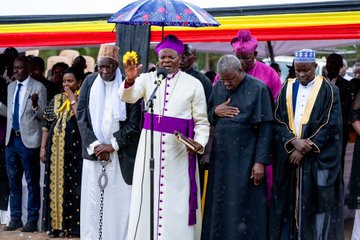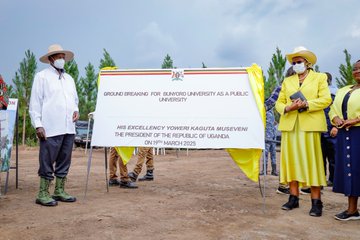President Yoweri Kaguta Museveni officiated at the groundbreaking ceremony for Bunyoro University in Kikuube District, highlighting the critical need for free education in government schools and poverty eradication to enable ordinary children to access higher education.
Addressing leaders and stakeholders, the President urged full implementation of Universal Primary Education (UPE) and Universal Secondary Education (USE) to curb school dropouts, particularly among children from low-income families.
“Insist on free education for children in government schools and implement it. The wealthy can afford private schools, but children from poor families must have no excuse for dropping out,” he stated.
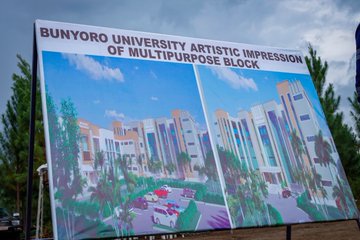
He warned that without accessible education and economic empowerment at the household level, local children might struggle to enrol at Bunyoro University.
“If families remain poor, children will drop out of school. If they drop out, who will attend this university? You may find students from other regions filling these slots while local children fail to complete primary or secondary education. A university is not a marketplace; one must progress through the education system to qualify,” he noted.
Museveni also stressed the importance of families supporting their children’s education beyond the limited government scholarships available.
“Even with free education, only a few high-performing students receive government sponsorship. The rest rely on family support, which is why we must focus on economic empowerment at the household level,” he explained.
Prioritising Relevant Courses
The President advised university planners to focus on courses that create employment opportunities. Drawing from his experience establishing Mbarara University of Science and Technology, he underscored the importance of prioritising medicine and science-based disciplines.
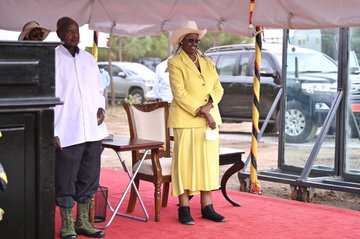
“A medical doctor will always find employment, whether locally or abroad. That’s why we started Mbarara University with medicine before adding science education and ICT,” he said.
He cautioned against offering courses with limited job prospects, particularly for students from peasant families.
“It’s unfair to educate a child from a poor family in conflict resolution while others pursue fields that guarantee employment. Be mindful of the courses you recommend for our children,” he advised.
Expansion of Public Universities
Museveni reminded leaders that when the NRM government assumed power, Uganda had only one public university—Makerere—which was producing just 80 doctors annually.
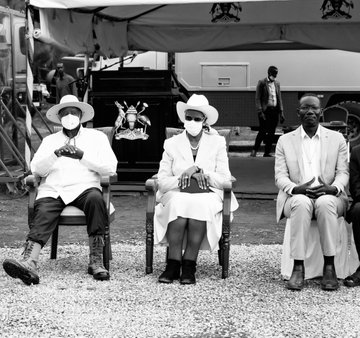
“The World Health Organisation recommends one doctor for every 500 people. With Uganda’s population now at 46 million, we need more doctors,” he said, reaffirming the government’s commitment to establishing a public university in each of the country’s 18 zones.
He contrasted Uganda’s stability with neighbouring nations facing turmoil, attributing the country’s progress to strategic prioritization.
“Some people claim the NRM has forgotten them, but they don’t understand prioritization. During our struggle, we knew what to address first. Today, because the economy has grown, we are tackling more issues, including expanding public universities,” he stated.
The President assured Bunyoro residents that with petroleum revenues expected next year, more development projects would follow.
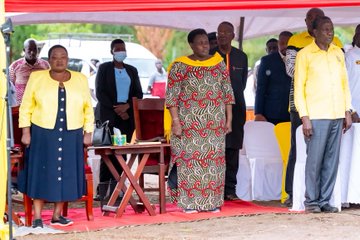
“We started Mbarara University despite opposition from those who insisted on consolidating Makerere. But the concept of public universities is mine, and we shall continue expanding,” he affirmed.
He concluded by appreciating the First Lady and Minister of Education and Sports, Maama Janet Museveni, for her dedication and patience in managing Uganda’s education sector.
Local Leaders Rally for Unity
Professor Samuel Kyamanywa, Chairperson of the Bunyoro University Task Force, described the new institution as a long-awaited game-changer for higher education in the region.
Meanwhile, Kikuube District LC5 Chairperson, Mr Peter Banura, called for unity among Bunyoro leaders and urged them to support government interventions regardless of personal differences.
